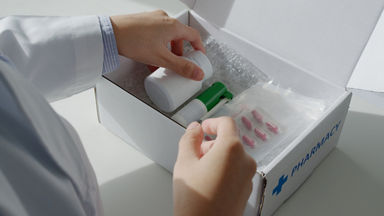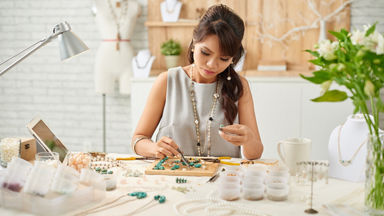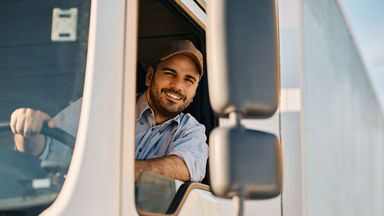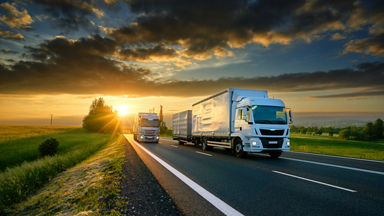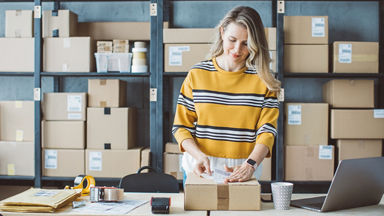Insights to Help Your Business
How to Prevent Shipping Damages in E-commerce Deliveries
As an e-commerce business owner, you hold the key to preventing shipping damage. Every shipment you send out carries the potential for damage, and it's in your hands to mitigate this risk. Remember, shipping damage not only costs you money but can also tarnish your hard-earned reputation.

In the world of e-commerce, ensuring a smooth delivery experience is key to keeping your customers happy. However, shipping damage is one of the most common challenges that e-commerce businesses face. A damaged shipping box or goods damaged during shipment can lead to unsatisfied customers, costly returns, and a dent in your brand's reputation. This guide offers simple strategies to avoid shipping damage, enhance customer satisfaction, and protect your e-commerce business from losses.
The Impact of Shipping Damage on E-commerce Businesses
Despite being out of your control, shipping damage can significantly impact your e-commerce business. It results in a poor customer experience and can lead to increased operational costs due to returns, replacements, and tedious claim processes. We’re here to help you prevent damages, lower costs, and keep your customers happy.
By taking proactive steps, you can significantly reduce the risk of damage during shipment. It starts with choosing the right packaging materials and partnering with reliable shipping carriers. These strategies will put you in control, allowing you to protect your products and keep your customers happy.
How to Choose a Package that Protects Your Products
The foundation of preventing shipping damage starts with selecting the right packaging materials. Proper packaging can mean the difference between a product arriving safely and a damaged shipping box, leaving customers wondering if they should have shopped elsewhere. Here are some tips to consider:
- Use High-Quality Boxes: Invest in sturdy boxes that can handle the rigors of shipping. Ensure the box size fits the item snugly to prevent extra movement during transit.
- Protective Cushioning: Use bubble wrap, packing peanuts, or foam inserts to cushion the item and absorb shock. This is particularly important for fragile items that are more prone to damage during shipment.
- Double-Boxing for Fragile Items: For delicate or valuable products, consider double-boxing. Place the item in a smaller box with cushioning, and then place that box inside a larger one with additional padding.
- Sealing the Box Properly: Use high-quality packing tape to seal the box securely. Reinforce the seams and edges to prevent the box from opening during transit.
The Extra Mile: Best Practices for Packing Fragile and Perishable Items
Fragile and perishable items require extra care during packaging. Items like glassware, electronics, and food products face a higher risk of damage during shipment. Here's how to prevent damage:
- Layering and Padding: Place fragile items in the center of the box with plenty of padding around them. Use dividers if necessary to keep items from touching each other.
- Temperature Control: For perishable items, consider using insulated packaging and cold packs to maintain the appropriate temperature throughout the delivery of your e-commerce goods.
- Labeling: Clearly label packages with “Fragile” or “Handle with Care” stickers. This encourages the carrier to take extra precautions during handling, reducing the risk of damage.
Your Best Ally: Partnering with Reliable Shipping Carriers
Even with the best packaging, your products are only as safe as the hands that carry them. Choosing a reliable shipping company is important to minimize any damage that may occur during shipping and ensure that customers receive their orders safely.
- Carrier Reputation and Performance: Research the carrier’s track record for handling shipments without damage. Look for carriers with positive reviews and a commitment to customer satisfaction.
- Leverage Shipping Insurance: Even the best carriers can only guarantee that some packages arrive undamaged. This is where InsureShield® Shipping Insurance can help you. By utilizing InsureShield Coverage, you can protect your business from the financial impact of shipping damage, ensuring you’re covered if something goes wrong.
- Tracking and Communication: Choose carriers that provide real-time monitoring and reliable communication. This allows you to monitor the shipment's progress and address any potential issues before they reach your customer. For example, real-time tracking can help you anticipate delays and communicate with your customers, enhancing their experience.
Implementing Quality Control Measures: The Last Line of Defense
Before any package leaves your store or warehouse, it should pass a thorough quality control check. This step ensures that the product is in perfect condition and has been packaged to withstand the journey ahead. Quality control measures can include visual inspections, weight checks, and drop tests to ensure the package can hold up against rough handling during transit.
- Pre-Shipping Inspections: Inspect items for defects or damage before they are packed. Ensure that they meet your quality standards and are packaged properly before shipping.
- Test Your Packaging: Occasionally test packages by simulating the shipping process. This helps you identify possible weaknesses and improve before real problems occur.
- Employee Training: Proper training for your packing and shipping team is essential. Confirm that everyone understands the importance of quality control and knows how to package items correctly to prevent damage during shipment.
How to Handle Shipping Damage When It Does Happen
Despite your best efforts, there may still be times when products or goods are damaged during shipment. How you handle these situations can make all the difference in maintaining customer trust and loyalty. Here's what to do:
- Filing a Claim for Shipping Damage: If a product is damaged during shipment, immediately file a claim. With InsureShield Shipping Protection, the claims process is fast and easy, helping you recover losses with minimal hassle.
- Communicating with Customers: Transparency is vital. Let your customer know what happened and how you plan to resolve the issue. Whether it's offering a replacement or a refund, showing that you're committed to making things right can turn a negative customer experience into a positive one.
- Learn and Improve: Each instance of shipping damage is an opportunity to learn and improve. Analyze the cause of the damage and adjust your packaging, shipping practices, or carrier choice as necessary to prevent future issues.
Leveraging InsureShield Shipping Protection for Peace of Mind
At the end of the day, shipping damage is a risk every e-commerce business faces. However, with the right strategies, you can significantly reduce the risk of damage during shipment. InsureShield Shipping Protection provides an extra layer of security, making sure your business is covered in case of problems.
InsureShield Shipping Protection isn't just about covering losses; it's about providing peace of mind. Knowing that you're covered in case of a shipping issue allows you to focus on what matters—growing your e-commerce business and taking care of your customers.
A Damage-Free Delivery Experience
Preventing shipping damage is important to the success of your e-commerce business. By investing in high-quality packaging, choosing reliable carriers, and leveraging InsureShield Shipping Insurance for protection, you can guarentee that your products arrive to your customers safely.
Make these strategies a part of your e-commerce routine, and watch customer satisfaction, loyalty, and your bottom line improve. A damage-free delivery is more than just a goal—it's a promise to your customers that your business cares about quality from start to finish.
Click the button below to learn how InsureShield Shipping Protection can help reduce shipping damages for your e-commerce deliveries.


























